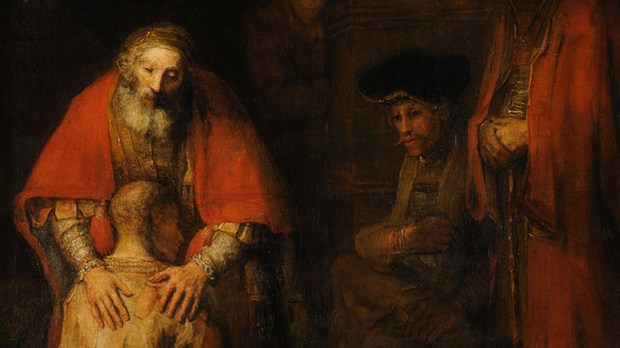Many Christians are familiar with the parable of the prodigal son. It is a parable that focuses on a son who renounces his father, but eventually returns and repents of his wrongdoing.
St. John Paul II said in a homily in 1999 that this parable should be renamed.
[T]he sublime parable which is usually called “the prodigal son,” but which should be called “the merciful father” (Lk 15:11-32).
He then goes on to explain his reasoning, focusing on the merciful love that the father displays in the parable.
Here God’s attitude is presented in terms that are truly overwhelming in comparison with human criteria and expectations … The merciful Father who embraces the prodigal son is the definitive icon of God revealed by Christ. First and foremost he is Father. It is God the Father who extends his arms in blessing and forgiveness, always waiting, never forcing any of his children. His hands support, clasp, give strength and, at the same time, comfort, console and caress.
St. John Paul II believed that the primary focus of this parable should be the merciful love of the father and how that same love is extended to us all.
In the light of this revelation of the face and heart of God the Father, we can understand Jesus’ saying, so disconcerting to human logic: “There will be more joy in heaven over one sinner who repents than over ninety-nine righteous persons who need no repentance” (ibid., 15:7). And: “There is joy before the angels of God over one sinner who repents” (ibid., 15:10).
While naming the parable the “prodigal son” highlights an important aspect of the parable, naming it “the merciful father” puts the emphasis on God’s abundant love revealed in the story.



